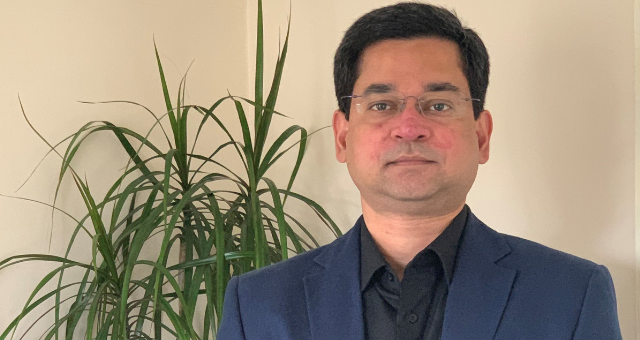
Academic Spotlight: Anupam Nanda, Urban Economics & Real Estate
Anupam Nanda is Professor of Urban Economics and Real Estate, as well as Deputy Head of our Planning and Environmental Management Department here at Manchester. In his academic spotlight, he shares with us background prior to joining Manchester, what attracted him to join the University and his area of research.
On your background
I grew up in rural India (in West Bengal), observing agricultural activities, changes in land uses and nascent stages of urbanisation in the 80s and 90s. Then, I went to college in the state capital city (Kolkata, India) to study Economics and then to the United States for doctoral studies in the same subject.
My work has taken me to various directions and places, and allowed me to observe a wide range of property markets and urbanisation – from rural India to metropolises of Mumbai and Kolkata to Boston and Washington DC to London and Manchester. My research brings those international experiences together and examines the processes and outcomes of our interactions with the property market and the complex dynamics of economic, environmental, political and societal issues.
I joined Manchester in November 2019. Previously, I worked at the University of Reading/Henley Business School for almost a decade (January 2010-October 2019), and with the Market Intelligence group of Deloitte & Touche in Mumbai (April 2008-November 2009), where my focus area covered real estate and private equity sectors. I was at the National Association of Home Builders (NAHB) in Washington DC (April 2006-April 2008), where my responsibilities included developing and implementing housing market research studies.
I hold UG, PG and PhD degrees in Economics (PhD in Economics, University of Connecticut, USA, 2006; MSc in Economics, University of Calcutta, India; BSc (Hons) in Economics, Statistics, Mathematics, St Xavier’s College, Kolkata, India), and I have almost fifteen years’ experience as a researcher, educator and consultant.
On your decision to join Manchester
The research reputation of the University of Manchester and the school/department is what attracted me to take up the job. My views on property market align quite well with other colleagues in the department with their multi-disciplinary perspectives. The city of Manchester itself with its great history is an added attraction.
On your research
I work on issues related to urban areas, housing and commercial properties where we all live our lives and earn our livelihoods. As an economist, I look for imperfections and inefficiencies in the market to analyse and understand how those shape our lives and the property market is a great laboratory to test various economic theories.
A property, whether it is a house or a commercial building or a parcel of land, is quite special as an asset and economic good with various implications for the individuals, for the society, for the local area and for the environment, and we all deal with properties in some way. The issues related to property market are so complex and multi-faceted that no one discipline can provide all the tools and concepts to fully understand. Therefore, I appreciate, learn and apply multi-disciplinary approaches and methods in collaborations with other experts.
My research specialisms are: economics of property markets; urban & regional economies; real estate finance, investor sentiment & behaviour, cross-border investment; housing market dynamics; Environment, Social and Governance (ESG) issues in property markets.
On your involvement in postgraduate teaching and supervising
I have introduced a new PGT unit – Advanced Real Estate Finance (semester 2), which combines various theories from economics and finance to develop technical skills and knowledge of decision-making in real estate investment. I supervise and coordinate PG dissertations in real estate. I also supervise PhD studies in real estate.






0 Comments